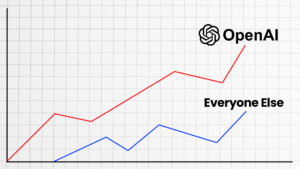In the ever-evolving landscape of technology, artificial intelligence (AI) has emerged as a transformative force, reshaping industries and revolutionizing the way we live and work. As governments worldwide strive to harness the potential of AI, a paramount concern has taken center stage — the imperative need to build AI systems with robust security measures. This article delves into the significance of integrating AI security into development, exploring the reasons why it matters on a global scale.
The Pervasiveness of AI
Artificial intelligence is no longer a futuristic concept; it is a present-day reality. From healthcare and finance to transportation and communication, AI applications are omnipresent. As the reliance on AI grows, so does the need to address the potential vulnerabilities that come with it. Governments worldwide are actively engaging in initiatives to ensure that the AI systems being developed are fortified against cyber threats and exploitation.
The Stakes of Inherent Design Flaws
In the race to achieve AI supremacy, developers face the daunting challenge of avoiding inherent design flaws that could render these systems susceptible to hacking. The consequences of such vulnerabilities are not confined to the realm of technology; they have far-reaching implications for global security, privacy, and socio-economic stability.
National AI Security Concerns
AI, when integrated into critical infrastructure, defense systems, and intelligence operations, becomes a pivotal component of a nation’s security apparatus. Any compromise in the AI security of a system could open the door to malicious actors, both state-sponsored and independent, to exploit vulnerabilities for strategic advantage. Ensuring that AI is built with security in mind is, therefore, a paramount concern for governments worldwide.
Economic Impacts
The economic ramifications of AI security breaches are significant. Industries heavily invested in AI, such as finance, healthcare, and manufacturing, could suffer severe financial losses in the event of a cyber attack. The potential disruption of supply chains, theft of intellectual property, and compromise of sensitive data pose tangible threats to economic stability. By prioritizing security in AI development, governments aim to safeguard the economic interests of their nations.
Privacy Safeguards
AI systems often process vast amounts of personal and sensitive data. Without robust security measures, this data becomes a prime target for cybercriminals seeking to exploit individuals’ privacy for illicit gains. Governments recognize the need to establish a framework that protects the privacy rights of their citizens, fostering trust in the adoption of AI technologies.
The Global Collaborative Effort
Recognizing the cross-border implications of AI security, governments are engaging in collaborative efforts to establish international standards and best practices. Forums and organizations dedicated to AI governance, such as the OECD (Organisation for Economic Co-operation and Development) and the AI Global Governance Commission, provide platforms for nations to collectively address the challenges of AI security.
Standardization for Consistency
International collaboration facilitates the establishment of standardized guidelines for AI development, ensuring a consistent and high level of security across borders. By adhering to shared standards, governments mitigate the risk of fragmented security protocols that could be exploited by cyber threats operating on a global scale.
Ethical Considerations
In addition to technical safeguards, the global discourse on AI security includes ethical considerations. Governments recognize the need to foster an ethical framework that guides the responsible development and deployment of AI technologies. This involves addressing issues such as bias in algorithms, transparency in decision-making processes, and the responsible use of AI in sensitive contexts.
Conclusion
In conclusion, the concerted efforts of governments to ensure that AI is built with security in mind are grounded in the recognition of the profound impact AI has on national security, economic stability, and individual privacy. As AI continues to permeate various facets of our lives, the importance of robust security measures cannot be overstated. The global collaborative initiatives and the focus on ethical considerations underscore the commitment to creating a secure foundation for the AI-driven future. In caring about AI security, we are not only safeguarding our technological advancements but also fortifying the pillars of a secure and resilient global society.
Do you want to make the most of technology in your business? Contact Epimax and follow us on social media today.













